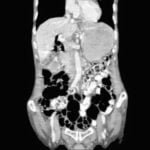
Eating disorders : A snapshot.
| Student corner: Contributed by Ms Aaliya Masoodi WHAT IS AN EATING DISORDER? Eating disorders come under psychological illnesses that cause unhealthy eating habits to develop. They might start with an obsession with food, body weight, or body shape. In severe cases, eating disorders can cause serious health consequences and may even result in death if not dealt with. Eating disorders are among the most painful mental illnesses. People with eating disorders can have a combination of symptoms. Common symptoms include severe limitation of food, food binges, and cleansing behaviours like vomiting or over exercising. Although eating disorders can affect people of any gender at any life stage. •WHAT ARE THE SIGNS OF AN EATING DISORDER? Different kinds of eating disorders have different symptoms, but each condition affects an extreme focus on issues related to food and eating, and some involve an extreme focus on weight. This obsession with food and weight may make it hard to concentrate on other elements of life. Mental and behavioural signs may include: •Drastic weight loss. •Concern about eating in masses. •Obsession with weight, food, calories, fat grams, or dieting •Complaints of constipation, cold intolerance, abdominal pain, sluggishness, or excess stamina. •Justifications to avoid mealtime. • Intense fear of weight gain or being “fat”. • Dressing in layers to hide weight loss. • Severely limiting the amount and types of food consumed. • Denying the feeling of starving. • Articulating a need to “burn off” calories by repeatedly weighing oneself. • Patterns of binge eating. • Cooking meals only for others. • Missing menstrual periods. Physical signs may include: • Gastrointestinal symptoms. • Difficulty concentrating. • Dizziness. • Feeling cold almost all the time. • Disturbed sleeping patterns. • menstrual irregularities • Feeling like throwing up and nauseous frequently. • Dry skin and thin nails. • Thinning of hair • Muscle weakness • Poor wound healing. • Poor immune system function. •WHAT CAUSES EATING DISORDERS? Many experts think that a variety of factors may contribute to eating disorders. The first one is genetics. People who have a sibling or parent with an eating disorder seem to be at an increased risk of developing Personality traits are another factor. In particular, neuroticism, perfectionism, and impulsivity are three personality traits often linked to a higher risk of developing an eating disorder, according to a 2015 research review. Other potential causes include perceived pressures to be thin, cultural preferences for thinness and exposure to media promoting these ideals. More recently, experts have proposed that differences in brain structure and biology may also play a role in the development of eating disorders. In particular, levels of the brain messaging chemicals serotonin and dopamine may be factors. •TYPES OF EATING DISORDERS. There are many types of eating disorders: 1. Anorexia nervosa, 2. Bulimia nervosa, 3. Binge-eating disorders, 4. PICA. These are the most common eating disorders. Other eating disorders include rumination disorder and avoidant/restrictive food intake disorder. In the next upcoming articles, I will be discussing each type in a detailed manner. Stay tuned. References: 1.American Psychiatric Association. Diagnostic and statistical manual of mental disorders (DSM-5®). American Psychiatric Pub; 2013. 2.Levinson, Cheri A.; Brosof, Leigh C.; Ram, Shruti Shankar; Pruitt, Alex; Russell, Street; Lenze, Eric J. (2019-08-01). “Obsessions are strongly related to eating disorder symptoms in anorexia nervosa and atypical anorexia nervosa”. Eating Behaviors. 34: 101298. doi:10.1016/j.eatbeh.2019.05.001. ISSN 1471-0153. PMC 6708491. PMID 31176948. |
Join the mailing list!
Get the latest articles delivered right to your inbox!

